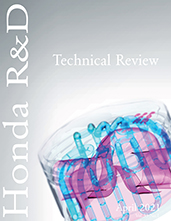Training / Education
Control Systems Simplified
This course introduces the highly mathematical field of control systems focusing on what the classical control system tools do and how they can be applied to automotive systems. Dynamic systems, time/frequency responses, and stability margins are presented in an easy to understand format. Utilizing Matlab and Simulink, participants will learn how simple computer models are generated. Other fundamental techniques in control design such as PID and lead-lag compensators will be presented as well as the basics of embedded control systems.

